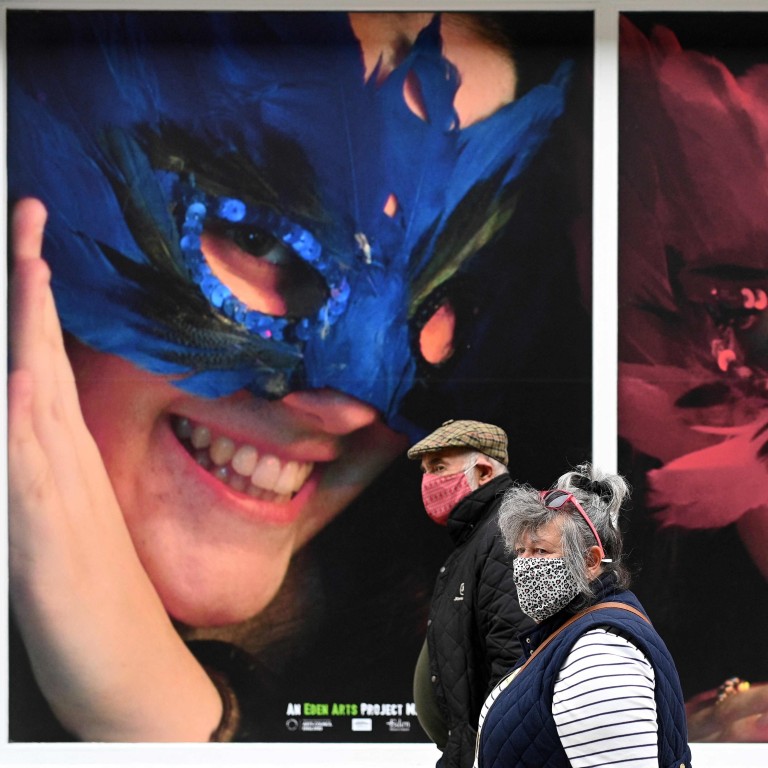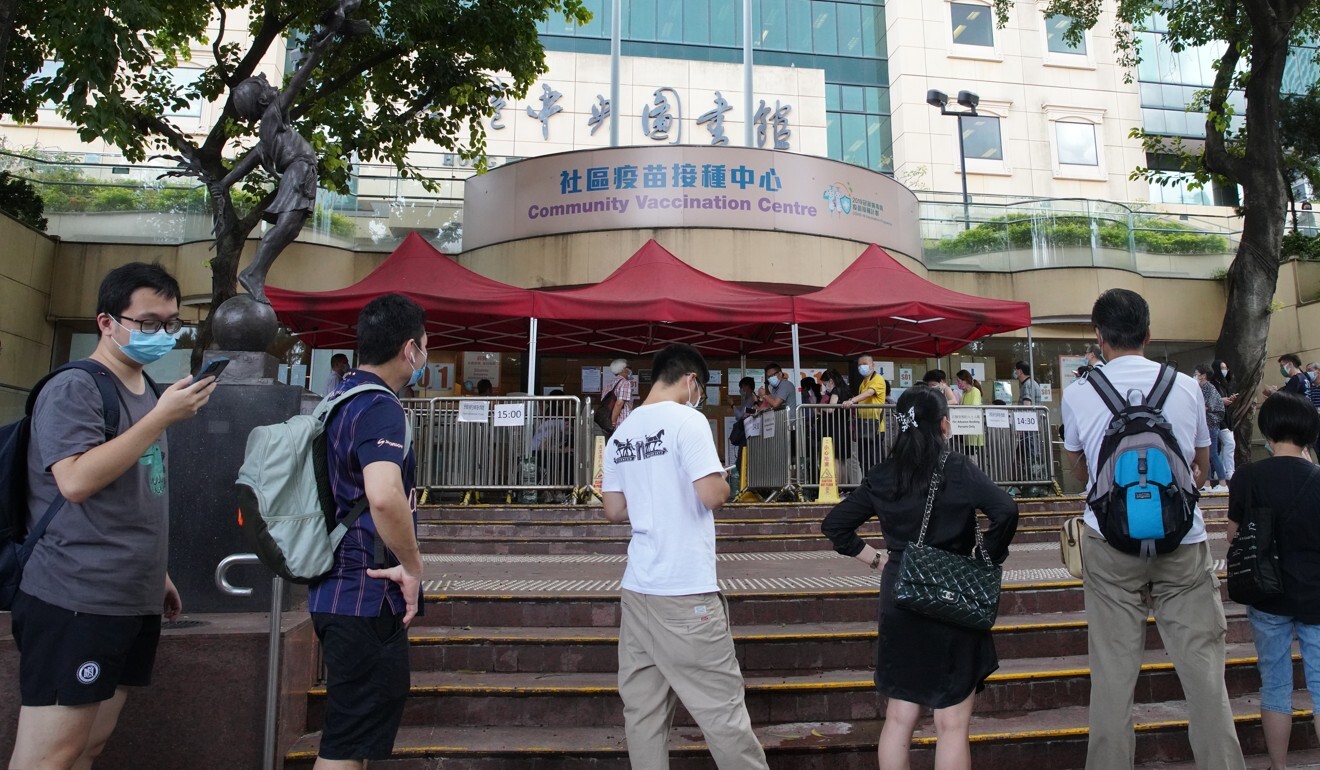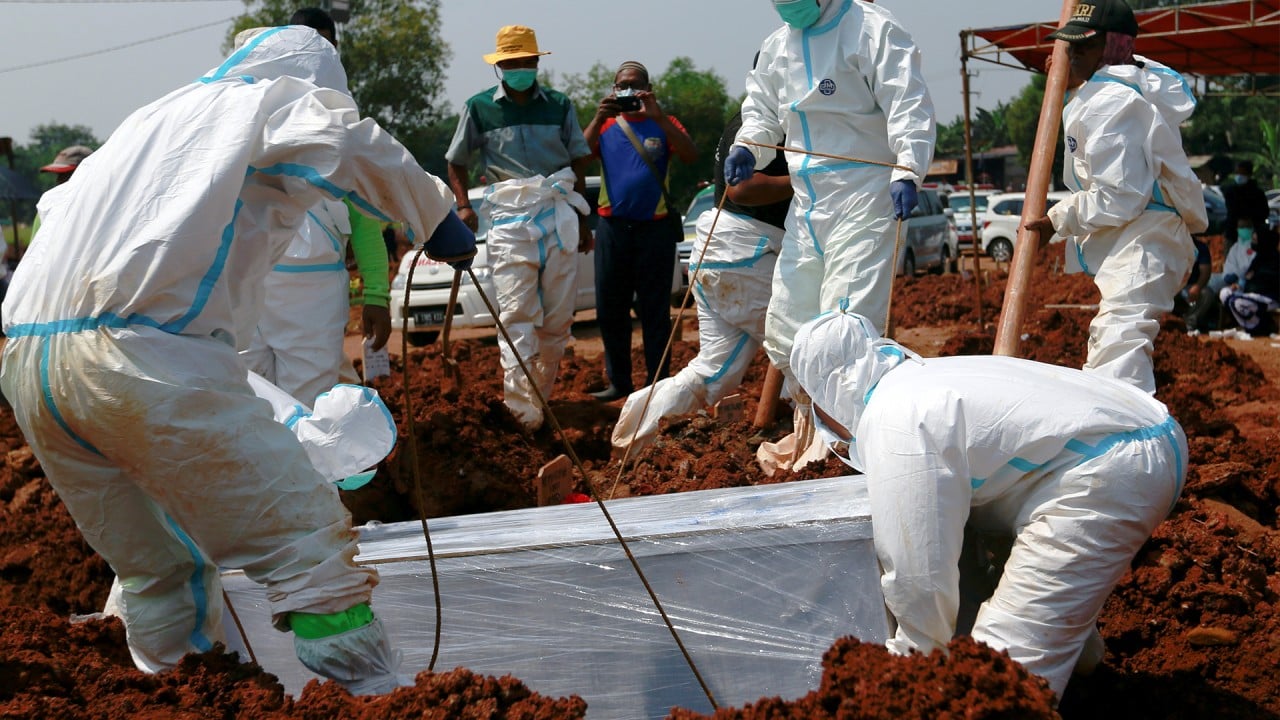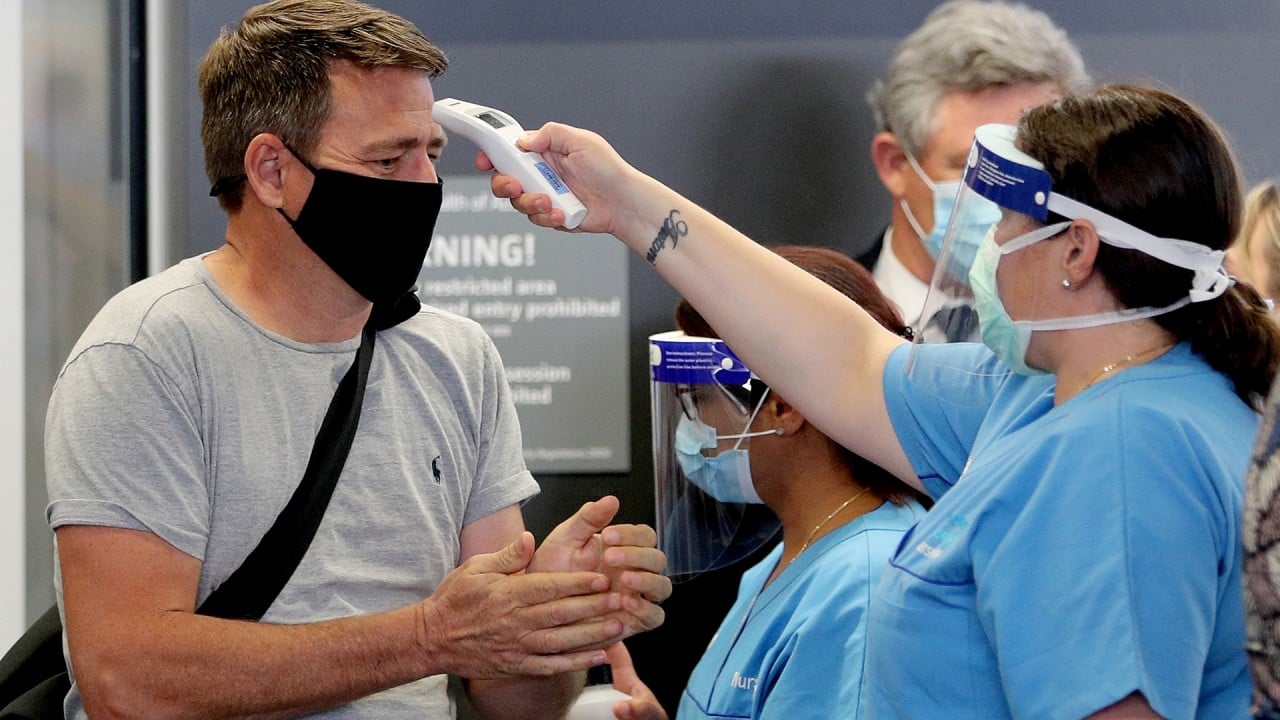
Coronavirus: Delta’s spread from London to Tokyo shows easing all restrictions after vaccination is ‘ill advised’
- The highly transmissible mutant strain has exposed both the vulnerability of countries with low vaccination rates and those that view jabs as a cure all
- Even in highly jabbed places, mask wearing and social distancing may need to stay, at least for now, while a Nobel Prize-winning scientist says antiviral drugs used alongside vaccinations may also have a vital role to play

“The key challenge remains getting these vaccines to enough people globally,” said Siddharth Sridhar, a clinical virologist at Hong Kong University. “To buy time for vaccination campaigns to ramp up, stringent border controls and mask usage are required.”
Thu Anh Nguyen, a researcher of infectious diseases and public health at the University of Sydney, said the new wave of infections fuelled by the Delta variant was “going to be the worst one in our region so far”.
“Low vaccine coverage and recently reported vaccine escape incidence suggest that reopening has to be seriously reconsidered.”
There are also concerns that the vaccines are not working as well against the variants.
According to a Public Health England analysis released last month, the Pfizer vaccine is 96 per cent effective against hospitalisation from the Delta variant after the second dose, while the AstraZeneca jab is 92 per cent effective. The jabs’ effectiveness dropped to 94 per cent and 71 per cent, respectively, with just one dose, according to the analysis.

But experts say the takeaways from rising infections even in high-vaccination places are not completely gloom-inducing, and should fuel a greater push towards promoting vaccinations.
In Britain, where nearly two-thirds of the population is fully vaccinated, cases have surged past 30,000 each day, mostly among the young and unvaccinated, with some experts predicting infections to reach triple figures in the coming weeks. The vast majority of cases, however, have been mild, with about 20 deaths on average each day during the last week – although this is likely to rise as deaths typically lag cases by several weeks.
Until countries achieve high rates of full vaccination, they needed to retain some public health measures such as masks and limits to indoor events or gatherings to protect the population, said Jeremy Rossman, a senior lecturer in virology at the University of Kent.
“We know that masks and avoiding crowded indoor spaces are two of the most effective measures to prevent the spread of the virus.”
How many deaths are acceptable in ‘zero-Covid-19’ economies?
In Israel, where about 60 per cent of the population is fully vaccinated, authorities have reintroduced compulsory masks indoors and a requirement that all arrivals quarantine until passing a Covid-19 test. Although cases have risen 10-fold over the last month, the country recorded just two deaths on Thursday – the first fatalities in over a fortnight – while hospitalisations have ticked up only slightly in recent days.
Manfred Green, a public health expert at the University of Haifa in Israel, said onerous restrictions should be lifted as vaccinations ramped up but less burdensome measures such as mask-wearing should stay in place.
“Personally I think that wearing of masks in closed spaces, public spaces still is a good idea, and I think that to remove that is not wise at this stage because the virus is still spreading widely and that is causing risks of new variants emerging, and of course occasionally it will affect people badly with more serious illness,” Green said.

03:51
Global Covid-19 death toll hits 4 million as WHO says vaccines ‘surest way to prevent more deaths’
Green said easing all restrictions was ill-advised “when we can do fairly simple things to reduce, considerably, the spread. But I wouldn’t put in any kind of severe restrictions, I think people should to a large extent carry on with their lives.”
Ong has previously indicated that restrictions may ease in line with vaccination targets, including fully inoculating two-thirds of the population by August, and non-essential travel to lower-risk countries could be possible by the end of the year.
Ooi Eng Eong, a professor of emerging infectious diseases at Duke-NUS Medical School, said people should be confident vaccines would help life get back to normal.
Is the zero-Covid approach of China and Japan about saving face?
“We are not in the same situation as we were last year, even with the emergence of variants of concern, such as the Delta variant that is more transmissible than the ancestral SARS-CoV-2 that started the pandemic,” Ooi said.
“Proportionately more people will need to be vaccinated than was first estimated for the ancestral SARS-CoV-2 as the Delta variant is more transmissible. With high vaccination rates, however, we can and should be confident of controlling Covid-19 even with the spread of the Delta variant.”
Peter Doherty, a Nobel Prize-winning expert in microbiology and immunology at the University of Melbourne, said that several antiviral drugs undergoing clinical trials could prove to be valuable tools for overcoming the pandemic in coordination with vaccines.

05:33
Covid-19 Delta variant: how infectious it is and how it may ‘shift thinking’ on countries reopening
“My way out of this would be to vaccinate as many as possible, likely with a booster shot every year. Then keep up the PCR testing and, immediately as anyone tests positive, give them a short course of an antiviral drug,” Doherty said. “The good thing about the drugs is that they should also work fine against mutant viruses, as they target different mechanisms. That’s basically the principle that we use to control HIV though, in that case – unlike flu or Covid – we can never clear HIV and have to keep treating people.”
Jerome Kim, director general of the International Vaccine Institute in Seoul, said authorities ultimately had no instruction manual for the pandemic and would have to be guided by the latest developments and data.
“There’s a lot of work to do,” said Kim. “We need to get more people vaccinated, we need to continue to emphasise masks and distancing until enough of the people are vaccinated for the population to be considered safe.
“And then we are going to need increasing knowledge and facility using the mask and vaccination data to start informing public policy about the best way to start releasing controls.”

